Costa Rica (Parque Internacional La Amistad)
Indigenous Peoples in Mesoamerica are coming together to influence international politics and advocate for their rights in the climate change agenda.
While Indigenous Peoples often lack formal recognition over their lands, they safeguard 80% of the world’s biodiversity. Yet these lands are regularly threatened by exploitation and deforestation due to livestock use, excessive timber logging, poaching, and large-scale projects like mining, hydroelectric and oil exploitation.
In Mesoamerica, a historical and cultural region extending from Mexico through Belize, Guatemala, El Salvador, Honduras, Nicaragua, and northern Costa Rica, Indigenous Peoples and forest communities have historical influence over 50 million hectares of forests. Although there have been initiatives to protect the region, such as the declaration of protected areas or the formation of “Biological Corridors”, the social and economic conditions of Indigenous Peoples and communities hasn’t changed. On top of this, the region is rife with political instability, large companies that infringe communities’ rights, and the criminalisation of environmental defenders.
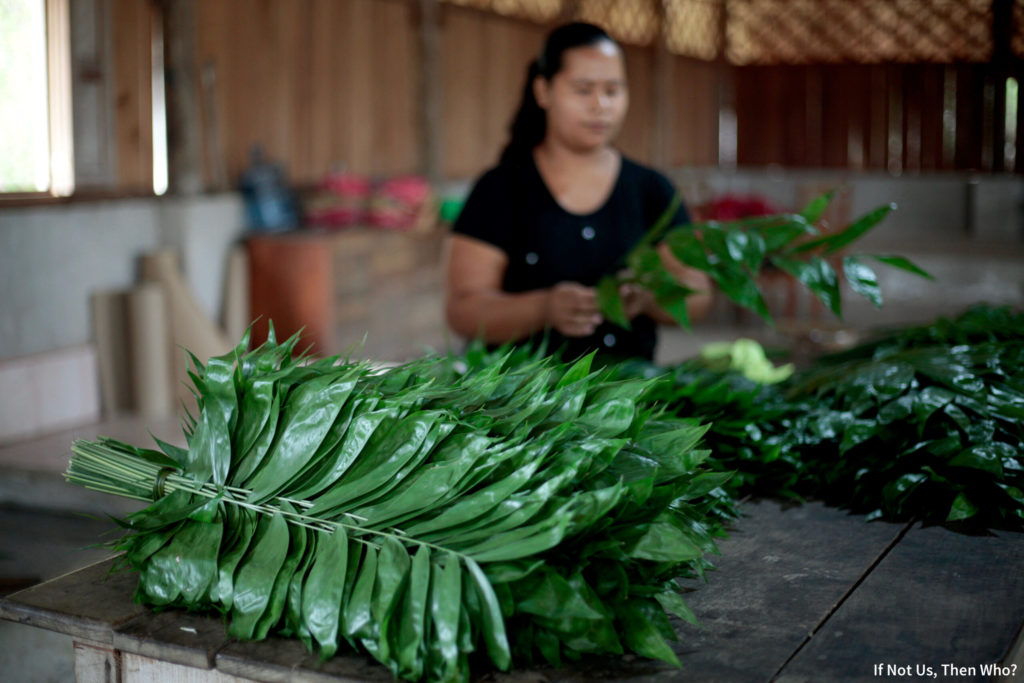
AMPB strengthen the territorial women leaders’ capacities.
Faced with these challenges, the Mesoamerican Alliance of Peoples and Forests (AMPB) formed in 2010 to bring together Indigenous Peoples and local communities from Panama to Mexico, to tackle climate change and improve territorial governance. One of their main areas of work is to influence international politics so that the climate change agenda integrates Indigenous community rights and their coexistence with the forests.
AMPB Coordinator Levi Sucre Romero, from the Bribri community in Costa Rica, recognises the challenge of the destructive development model, especially after COVID-19 when regional governments focus on economic recovery without taking into consideration sustainable approaches. However, he points out that AMPB’s communities have grown from strength to strength: “we have more installed capacities and a union that strengthens our demands. Our territories are generating more and more proposals and solutions based on ancestral knowledge.”
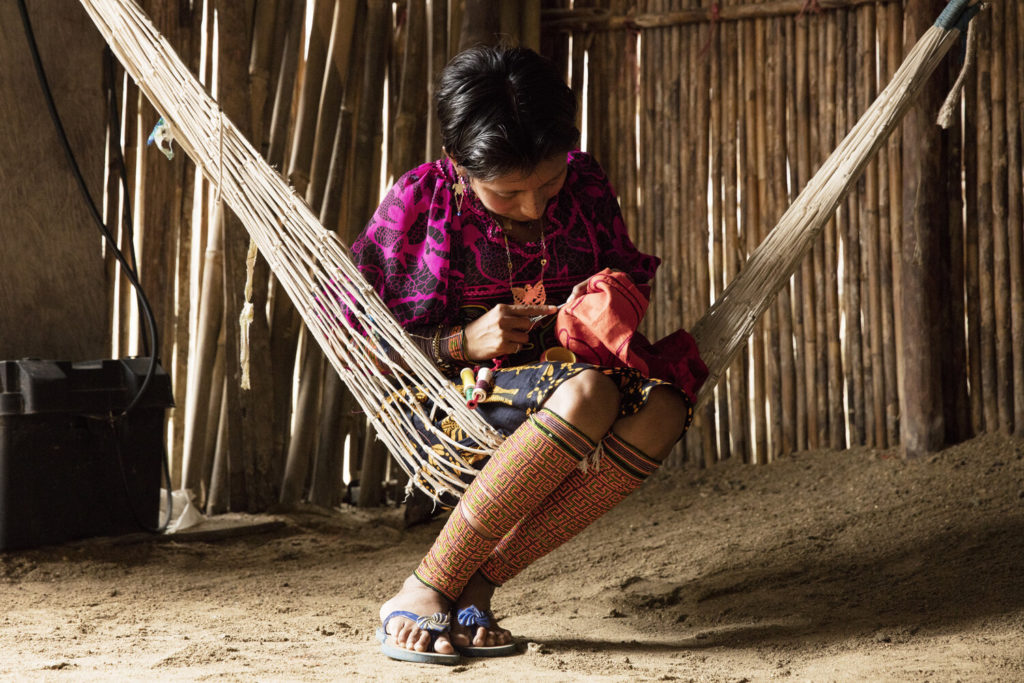
Crafting, Isla Soledad Mandinga, Guna Yala. Woman spend part of the day making crafts to wear and sell to the few tourists that pass through.
AMPB’s advocacy work is focused on two areas: community forest management and territorial rights. Their presence at national, regional, and international meetings enables Indigenous voices to be heard, bringing their important knowledge in forest management to global discussions on climate change.
Recently, they co-convened the First Regional Congress on Forests and Sustainable Landscapes, with the Ministry of the Environment of Panama, the Central American Commission for Environment and Development (CCAD) and other allies. It brought together leaders of Indigenous Peoples and forest communities, government officials, civil society organisations, research centres and donors from Central America and the Dominican Republic, to discuss the main challenges and opportunities in the region in the fight against climate change.
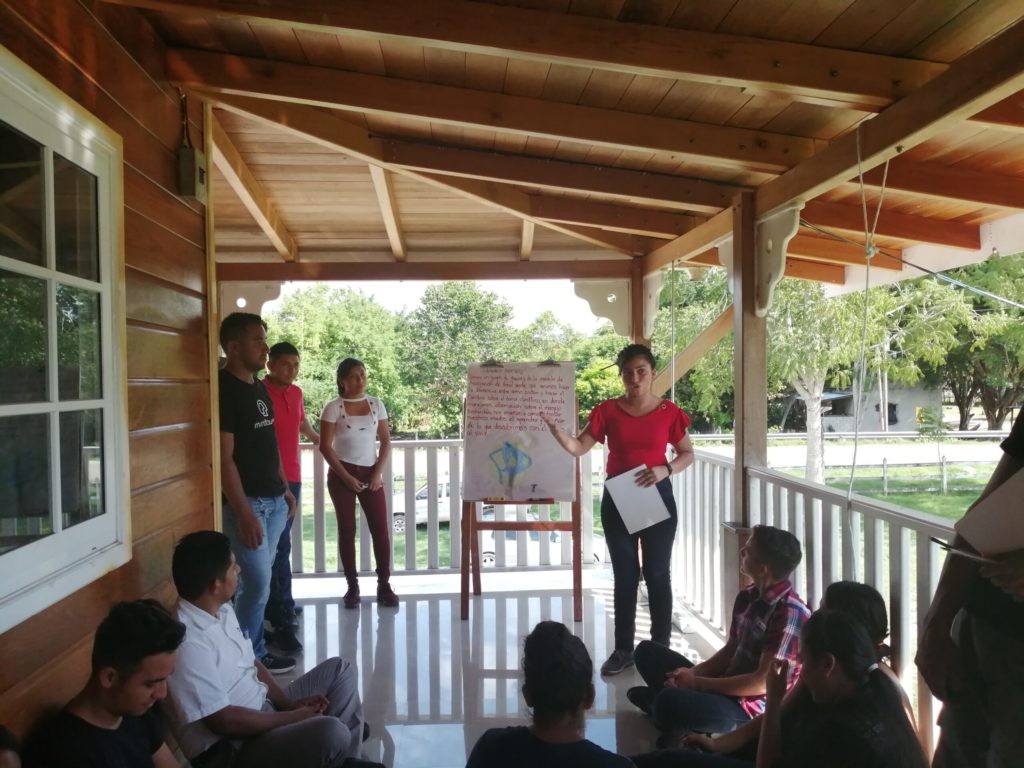
Leadership school, Peten, Guatemala.
But campaigning for change in these international forums is only part of what AMPB does and advocating for community rights begins at the grassroots level. Therefore, the Alliance, made up of 10 traditional authorities of Indigenous Peoples, Indigenous-led organisations and community concessionaires in Mesoamerica, places capacity-building at the heart of many of their programmes, which include capacity development, direct financing to territories and political training.
Their leadership school, a “school without walls”, is an itinerant programme that adapts the curriculum to each context, strengthening leadership and capacity-building in community-based and Indigenous organisations. The sharing of knowledge across communities in Mesoamerica is an important part of the Alliance, as Alejandra Menéndez from the Alianza OFC Guatemala says, “The Mesoamerican countries have points in common, and this can be seen in how young people organise to be the protectors of natural resources, forests, soil and water.”
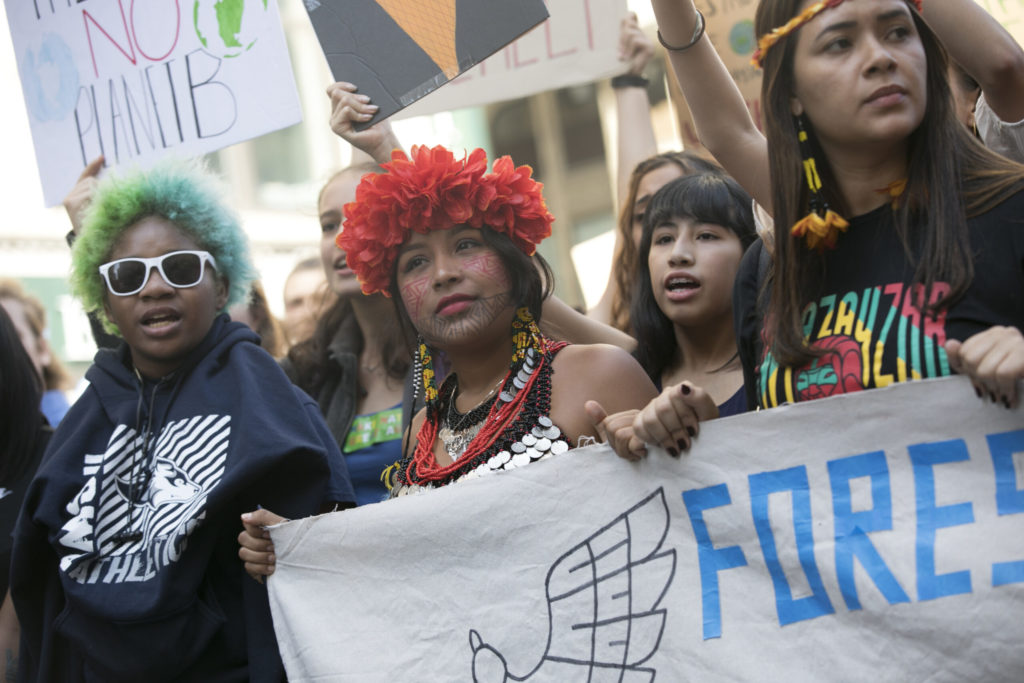
Global Alliance of Territorial Communities Indigenous peoples and local communities from the Amazon basin, Brazil, Mesoamerica and Indonesia in NYC for the Climate Strike on Sept 20, 2019.
Another line of work emphasises the role women have to play in the sustainable development and management of the region’s forests. The Coordinator of Territorial Women Leaders of Mesoamerica programme pays particular attention to increasing women’s participation in political and leadership roles, so that they are involved in decision-making processes in their communities and grassroots organisations.
AMPB’s third line of work is the Mesoamerican Territorial Fund (FTM), which promotes inclusive economic growth and supports small businesses to participate in competitive international markets. The Fund focuses on the rapid deployment of direct financing linked to territorial forestry and agroforestry projects, to achieve significant progress in the face of climate change, conservation, and large-scale development.
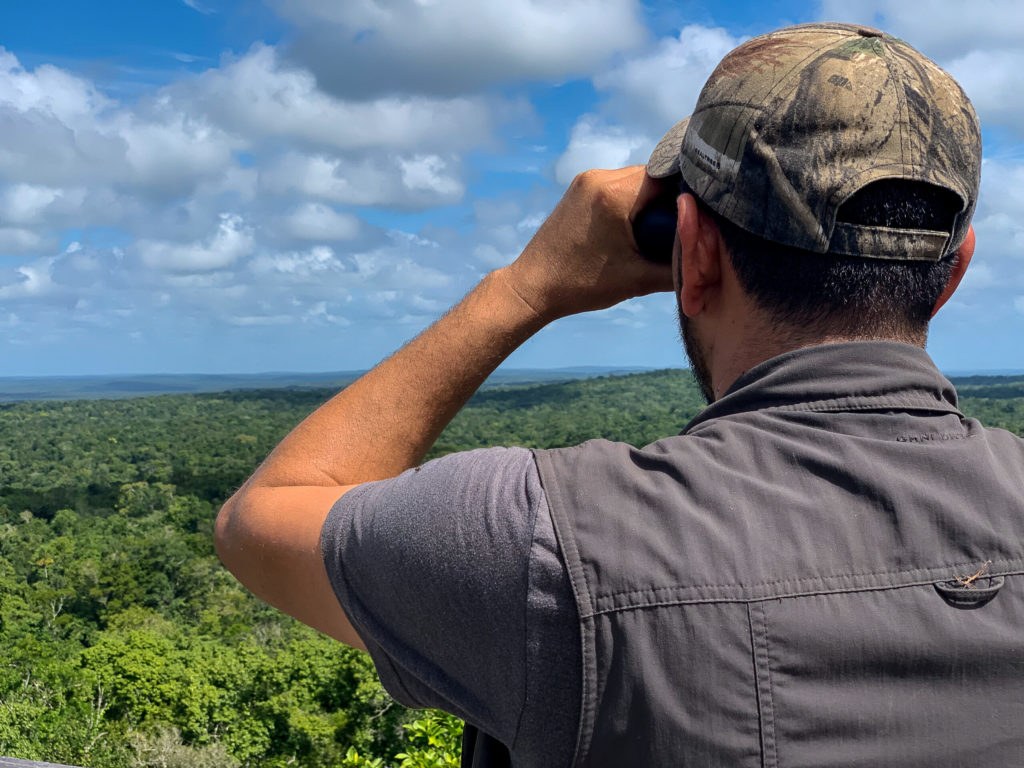
Monitoring activities in Peten, Guatemala.
There is reason to be hopeful about Indigenous land management in the region. In Mesoamerica, more than 60% of the forests have had their community’s territorial rights recognised. This has led to stronger local organisations, community forestry enterprises and local eco-tourism initiatives, improving management and sustainable forest conservation.
As Levi Sucre Romero points out, “we, as indigenous peoples, are increasingly organised. We are gaining more and more knowledge. We have more communication tools. Also, we have successful experiences in the region, like in forest management, in organic production, in solar panels managed by women. We are returning to our roots, to our indigenous cultural knowledge in order to survive. Because now it is about survival.”
From grass-roots participation to advocacy at international forums, AMPB amplifies the voices and experiences of Indigenous communities to make sure they are heard in the climate change agenda.
AtlasAction: You can follow AMPB’s advocacy work on their website and hear about their project stories on YouTube. You can also sign up to their newsletter and follow them on Twitter, Facebook and Instagram.
► Passionate about climate justice? Check out our JustFutures channel.
Editor’s note: This is a regional project with no fixed headquarters. However, we want readers to be able to find AMPB on our map, so it is mapped to the general region of one of the community members. Research and editorial support for this article was conducted by Bianca Fiore.
Project leader
Levi Sucre Romero, AMPB Coordinator
Partners
Support the Atlas
We want the Atlas of the Future media platform and our event to be available to everybody, everywhere for free – always. Fancy helping us spread stories of hope and optimism to create a better tomorrow? For those able, we'd be grateful for any donation.
- Please support the Atlas here
- Thank you!




